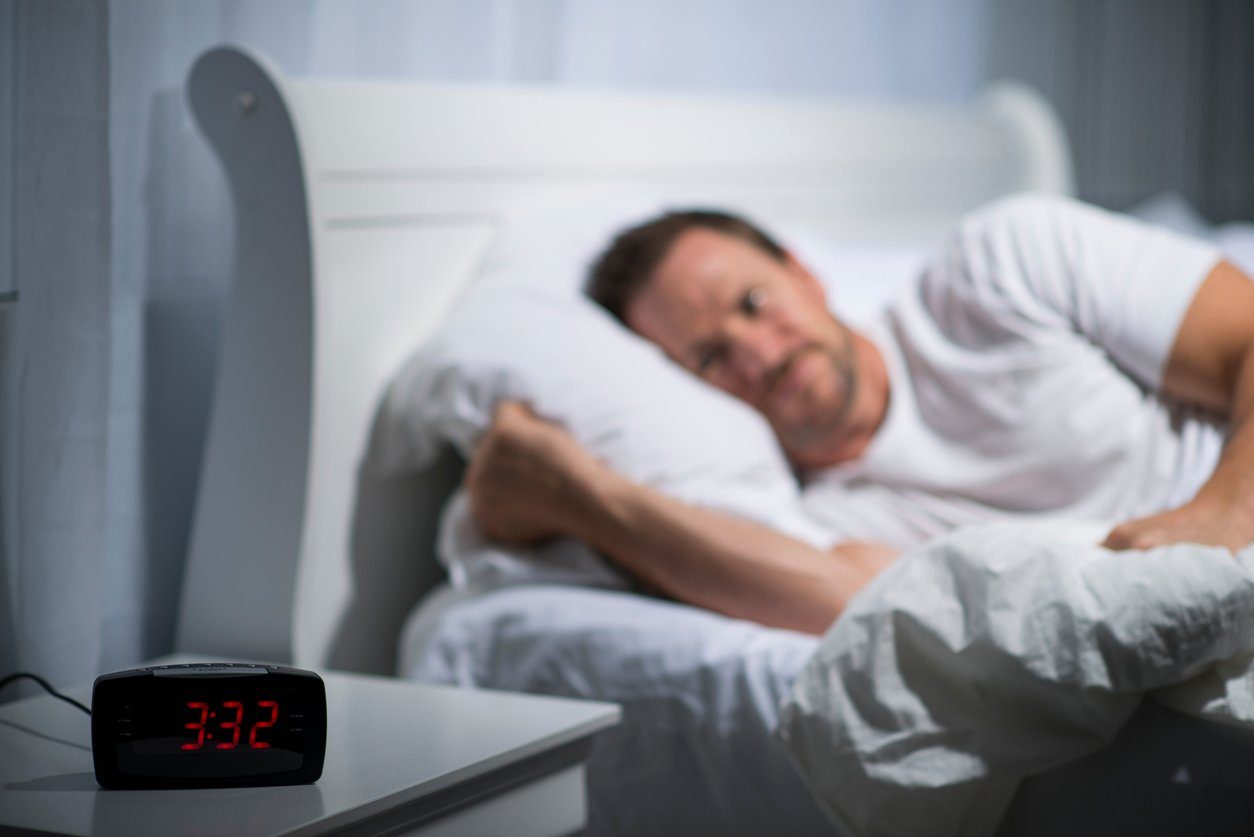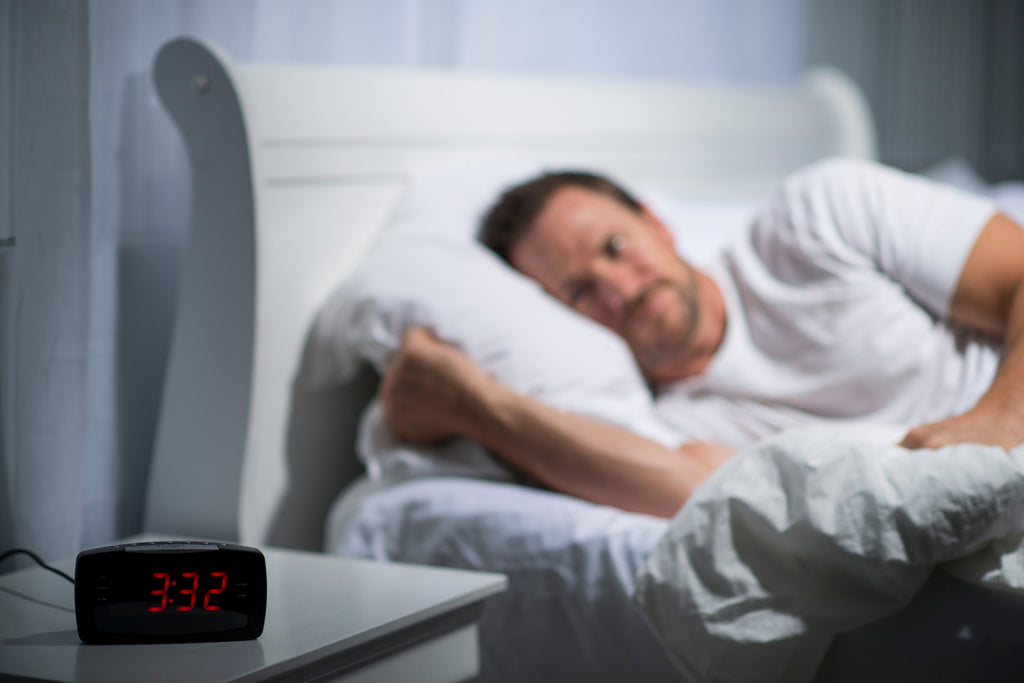The Unsurprising Links Between Stress and Lack of Sleep


Life can get busy, and with a busy life often comes added stress.
If you are experiencing stress, you might think that the best treatment is to push through it, working hard and getting things done. After all, if you work hard enough, you will forget your stress, and you can get more things done, right? Wrong. Keeping yourself busy is not going to make you feel less stressed. Instead, you need to focus on getting enough sleep.
Thought, you might be wondering how getting more sleep will help. And furthermore, how can you get a good night's sleep when you are feeling stressed?
Let’s dive into it.
How Stress Affects You
There is no avoiding stress. It is something that we will experience throughout our lives. While we often focus on the negative influences of pressure, an article by the National Institute of Mental Health pointed out that stress is not always severe. It can motivate you to work harder or prepare harder for something such as a crucial test or a job interview. Long-term stress, though, can have a severe negative impact on your life. According to the American Psychological Association, stress and lack of sleep can affect your body in a variety of ways.
Respiratory System
Stress may cause you to breathe harder. For those with respiratory issues, such as asthma or lung disease, that may make it difficult for the person to breathe. Stress may also lead to an asthma attack or other breathing issues. Rapid breathing may also lead to the person suffering a panic attack.
Musculoskeletal System
Stress may cause your muscles to tense up. It may happen in tissue all over the body, which may lead to slower recovery from an injury. Chronic muscle tension in the head, neck, and shoulders may also cause migraines or tension headaches.
Reproductive System
Unfortunately, stress may also affect your reproductive system. For men, this may mean lower testosterone and sperm production. Men may also experience erectile dysfunction and other problems with their reproductive organs. For women, they may experience irregular or absent menstrual cycles. A woman experiencing stress may also have intensified PMS or menopause symptoms. Low sex drive and fertility issues are other problems stress may cause for people of both genders.
Other Systems
Stress can affect other body systems. Other symptoms you may experience are an upset stomach, ulcers, diarrhea, constipation, hypertension, and a weakened immune system.
How Sleep Helps with Stress
Fortunately, getting more sleep may help you to fight the adverse effects of stress. According to a 2013 sleep study, Americans sleep an average of 6.7 hours per night, which is below the recommended 7-9 hours of nightly sleep. Twenty-one percent of adults in the survey reported feeling increased stress when they didn't get enough sleep. Of those reporting high-stress levels (8-10 on a scale of 10), 45 percent said they had higher stress levels when they don't get enough sleep. The study also found that those who reported lower stress levels got more sleep at night on average (7.1 hours versus 6.2 hours).
Getting enough sleep can also help with your concentration, your mood, and your energy levels. It allows you to think clearer, feel happier, and work harder when you are awake. Plus, you likely feel more motivated to get things done. It will make you more productive, which can help you feel less rushed and stressed as you go about your day.
Sleep may also allow you to look at a stressful situation with a new perspective, which may allow you to realize that the case was not as dire as you initially thought. Ultimately, making sleep a priority is essential, especially if you are experiencing high levels of stress.
How to Get a Good Night's Sleep
Of course, most people realize that getting enough sleep should be a priority, especially if they are experiencing high levels of stress. Unfortunately, high pressure and worry can make it difficult to fall asleep. Since stress and lack of sleep go hand-in-hand, it can be challenging to get enough sleep when concerns keep you up at night. Here are a few simple tips.
Make it a Priority
One of the most important things you can do to increase your chances of getting enough sleep is to make it a priority. If you want to get 8 hours of sleep, set aside 8 hours in your day for rest. If you are currently only sleeping about 6 or 7 hours a night, going to bed an hour or two earlier likely won't work too well. Instead, go to bed fifteen or twenty minutes more prior than you go now, and slowly go to bed earlier and earlier until you are regularly getting 8 hours of sleep per night. It is also essential to go to bed and wake up at about the same time every day. Establishing a sleep schedule will likely help you sleep better.
Let Yourself Power Down
Many things may make it difficult to fall asleep at night. Electronics, such as your phone, computer, and television, should not be used right before you go to bed. Ideally, you should avoid using any electronics for at least a half hour before going to bed. The bright lights may make it hard to go to sleep, and stimulating your mind just before bed may make it hard for your brain to power down for the night.
You may also want to try a few different relaxation techniques to help you sleep better at night. It may include listening to white noise or light, calming music as you get ready for bed and as you are falling asleep. Deep breathing exercises may also help you sleep better. Some people have also found that aromatherapy helps them fall asleep at night.
Get Help When Needed
Sometimes, you may be unable to get enough sleep on your own, no matter how much you want to get a good night's sleep. When this is the case, it might be time to visit a professional. A doctor or other sleep specialist may be able to provide you with the resources you need to sleep better and eliminate some of the adverse effects of stress.
Of course, one of the keys to getting enough sleep is having the right mattress. If your current mattress is no longer comfortable, perhaps it is time to get a new bed. Contact us to learn about the great mattresses we have available.



